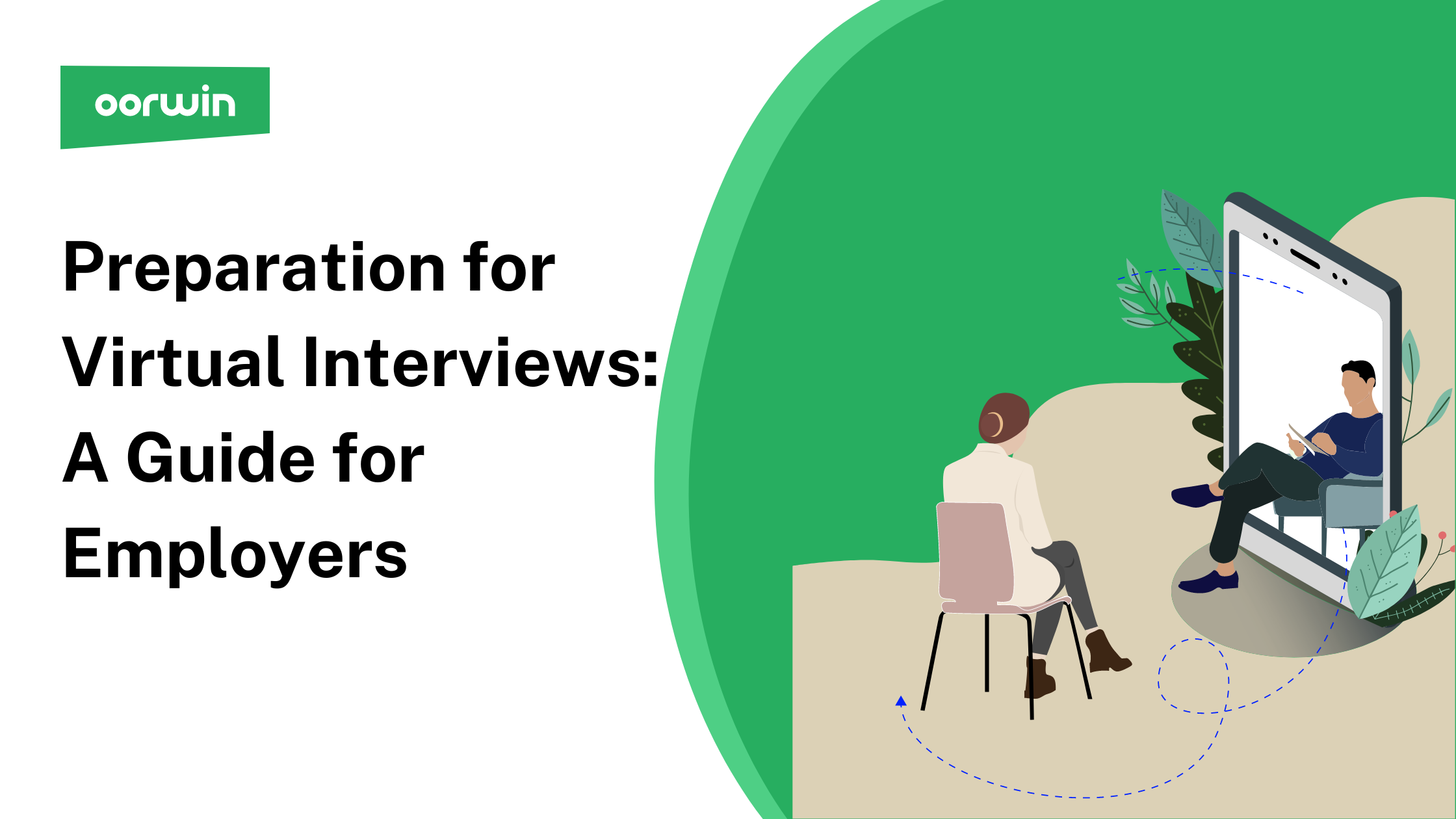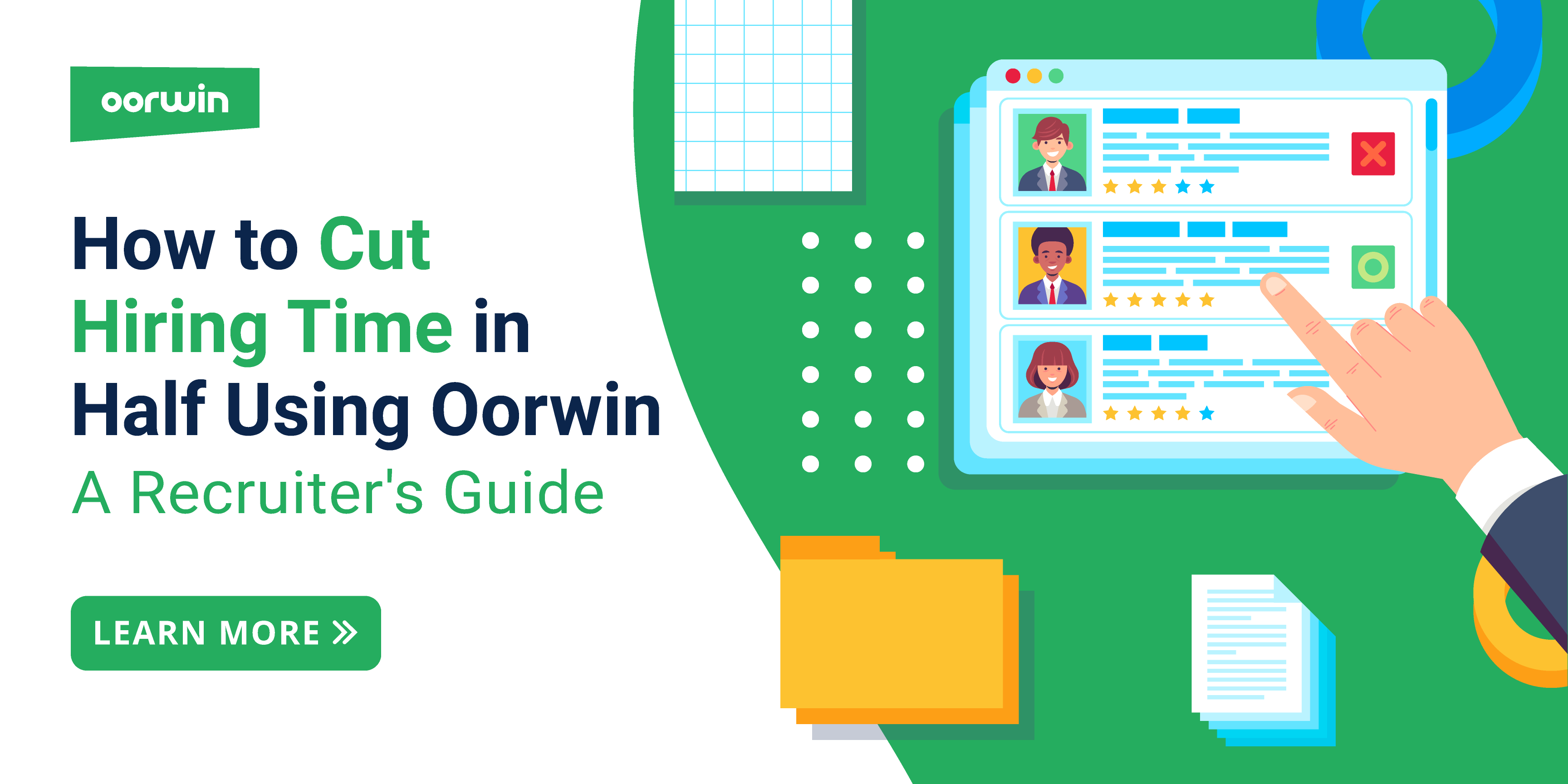Preparation for Virtual Interviews: A Guide for Employers
Oorwin
3min read / 30 Aug 2023

Related Articles
Virtual Interview Preparation: A Recruiter’s Roadmap
Virtual interviews have become a staple in recruitment in today’s fast-paced world, where technology shapes how we work and interact. As employers, adapting to this digital shift is paramount. This guide will walk you through the essential steps to prepare for virtual interviews, ensuring a seamless and efficient process that impresses candidates and yields successful hiring outcomes.
Landscape of Virtual Interviews in 2023
Virtual interviews have undergone a significant evolution over the years. In 2023, they have become more than just a workaround for geographical constraints. They offer benefits like increased scheduling flexibility, reduced time and cost investments, and the ability to assess candidates’ adaptability to remote work environments.
Why do Recruiters Use Virtual Interviews ?
Virtual interviews aren’t just a convenience for candidates; they’re a boon for employers too.
Global Talent Pool: Virtual interviews allow employers to access a diverse talent pool from around the world, enabling them to find the best fit for their organization regardless of geographic boundaries.
Cost-Efficiency: Conducting interviews virtually eliminates the need for travel and accommodation expenses, saving both time and money for employers.
Scheduling Flexibility: Virtual interviews offer greater flexibility in scheduling, making it easier to coordinate interviews with candidates across different time zones.
Streamlined Process: The digital nature of virtual interviews streamlines the hiring process, reducing paperwork and administrative tasks.
Reflects Tech-Savviness: Employing virtual interviews showcases a company’s technological prowess and willingness to adapt to modern work practices, which can attract tech-savvy candidates.
Reduced Logistical Complexities: Employers can sidestep logistical complexities associated with in-person interviews, such as booking meeting rooms and arranging for panelists to be in the same location.
Time Savings: Virtual interviews save time for both employers and candidates, as there is no need to commute or wait for extended periods.
Essential Steps in Preparing for Virtual Interviews
Preparing for virtual interviews involves several crucial interview practices that guarantee a successful hiring experience.
Familiarizing with Technology
Firstly, ensure that your team is well-versed in the technology required for virtual interviews. From video conferencing platforms to screen-sharing tools, familiarity with these technologies is crucial for a smooth process.
Designing the Virtual Interview Process
Craft a comprehensive virtual interview process that aligns with your company’s values and job requirements. Define stages, time allocations, and evaluation criteria to maintain consistency and fairness.
Training Interviewers
Training your interviewers to conduct virtual interviews effectively is pivotal. They should be well-versed in the platform’s features, maintain professionalism, and exhibit strong communication skills.
Communicating with Candidates
Transparent and timely communication with candidates is key. Provide clear instructions regarding the interview process, technical requirements, and any preparation materials they might need.
Virtual Panels and Team Introductions
Introducing candidates to virtual panels and team members provides a window into your company culture and collaboration dynamics. This interactive approach allows candidates to envision their role within the team, fostering a sense of belonging and alignment with your organization’s values and goals.
Structured Interview Questions
Craft well-defined, structured interview questions that assess a candidate’s skills, experience, and cultural fit. This approach ensures consistency and enables fair comparison among candidates.
Accommodating for Accessibility
Prioritizing accessibility in virtual interviews ensures an inclusive experience for all candidates. Features such as closed captioning, screen reader compatibility, and easy navigation of the virtual platform create an environment where candidates with disabilities can fully engage and showcase their abilities.
Addressing Potential Biases
Mitigate unconscious biases in virtual interviews by training interviewers to prioritize skills and qualifications. Implement standardized evaluation criteria to reduce subjective judgments and ensure a fair assessment process.
Observation and Note-Taking
Urge interviewers to maintain detailed notes during virtual interviews. This practice enhances accurate candidate evaluation and facilitates recall of specific attributes, aiding effective decision-making.
Communication and Follow-Up
Employ automation tools to dispatch follow-up emails and updates to candidates post-interview. This exhibits professionalism, sustains candidate interest, and enhances the overall candidate experience.
Enhance your virtual interview process with seamless integrations using Oorwin. Our platform offers direct integration with leading video interviewing platforms like Zoom, Jobma, and Willo.
Streamline your virtual interviews, ensure efficient communication, and provide a top-notch candidate experience. Elevate your recruitment game with Oorwin’s integrated solutions today!
Frequently Asked Questions
Why are virtual interviews becoming more common in the hiring process?
Virtual interviews offer convenience, access to a wider talent pool, and the ability to assess remote work skills.
Why do recruiters use virtual interviews?
Recruiters use virtual interviews for a variety of reasons, all of which aim to streamline and improve the hiring process.
What steps can I take to minimize bias and ensure fairness during virtual interviews?
Use structured questions, standardized evaluation criteria, and training to mitigate biases and promote fairness.
Popular Articles..
Blog

5min read / 25-Jun-2025
Master Effective Interview Techniques with Oorwin: A Step-by-Step Recruiter’s Guide
Blog
Blog
Get the latest Oorwin releases, updates, success stories & industry news
 Back
Back
